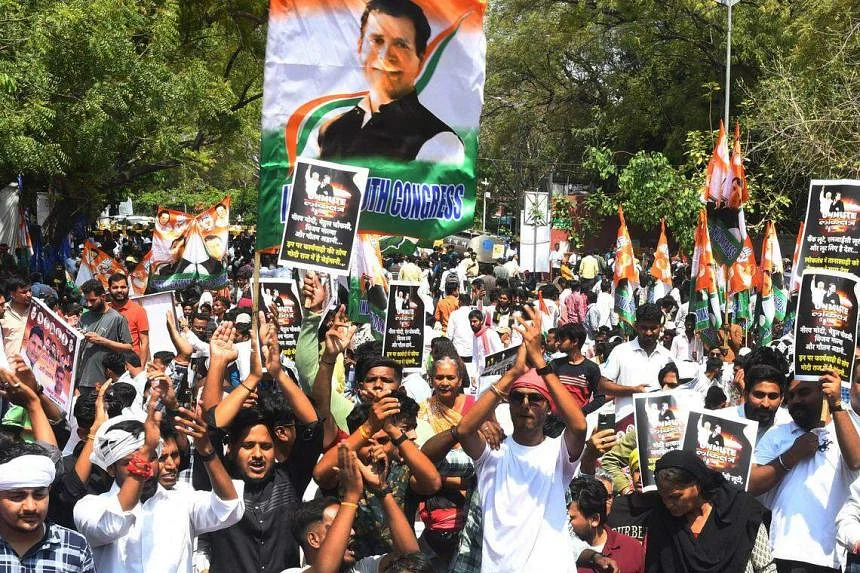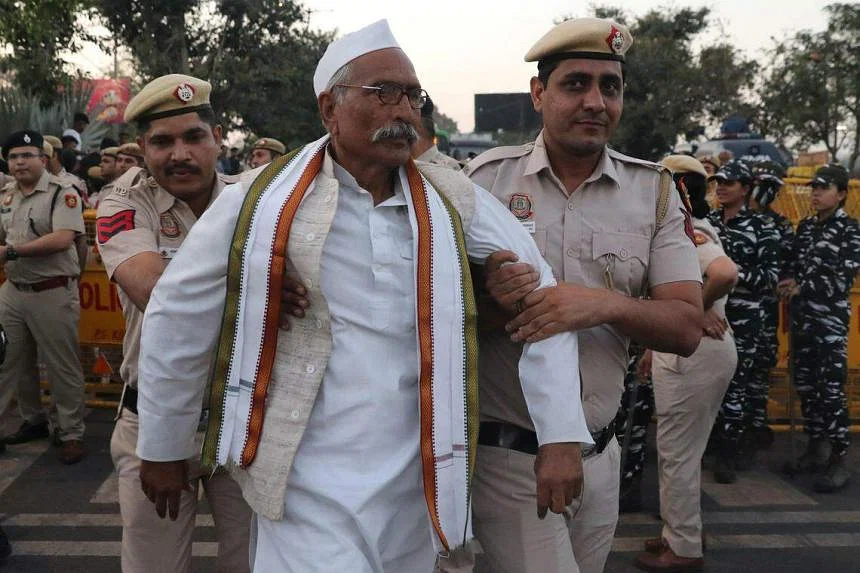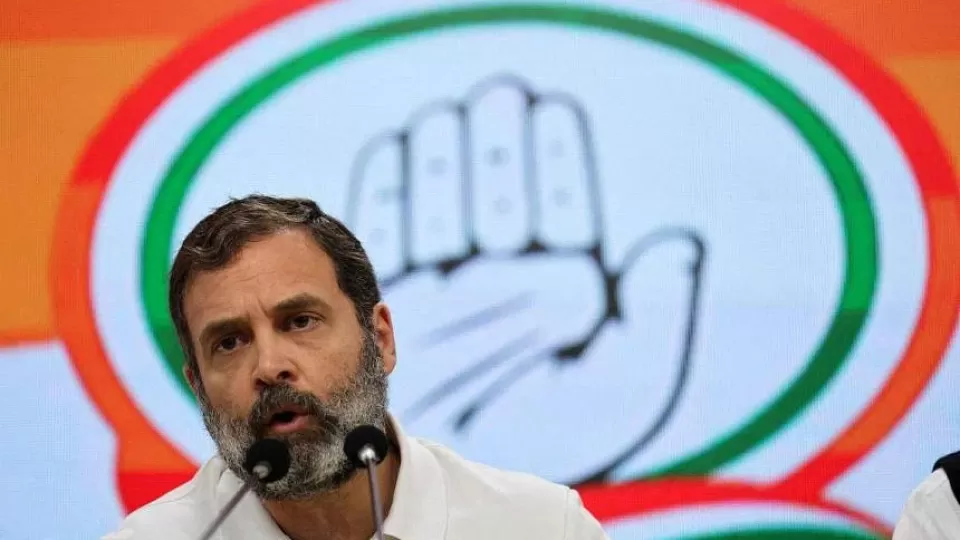March 30, 2023
NEW DELHI – Congress leader Rahul Gandhi’s disqualification as a lawmaker after losing a criminal defamation case has united the opposition and put the Gandhi-Nehru scion at the centre of India’s opposition politics.
But will this rare coming together of opposition parties fizzle out or lead to an alliance?
Analysts believe it remains a tough road ahead for opposition unity, amid fears among regional parties that Congress might eat into their support base, coupled with questions about Gandhi’s ability to manage and lead an opposition alliance.
Gandhi, 52, whose father Rajiv, grandmother Indira and great-grandfather Jawaharlal Nehru were all former prime ministers, was found guilty of defamation by a court last Thursday in the state of Gujarat over a speech at a rally in which he referred to those with the surname “Modi” as being thieves, in a dig at Prime Minister Narendra Modi.
The case was brought in 2019 by Bharatiya Janata Party (BJP) legislator Purnesh Modi.
But what has caused further disquiet is the lightning speed with which Gandhi, an MP from Wayanad in Kerala state, was disqualified from the Lower House of Parliament – just a day after the verdict, on Friday.
He is now in the process of being evicted from government-allotted housing where he has lived for nearly two decades.
Under the law, Gandhi cannot take part in the electoral process for eight years and has 30 days to appeal against the verdict.
If the conviction is overturned during appeal, he can return to electoral politics.
“There is no doubt that the comment that Rahul Gandhi made was flippant and out of place. But the response has been an overreaction, including the haste with which he has been disqualified. You have possibly opened up a window of opportunity for the opposition to unite,” said Dr Sandeep Shastri, a political analyst and national coordinator for the Lokniti Network, a research programme.
“Now does the opposition keep the window of opportunity open, or will the BJP get it shut quickly?”
Parties that had earlier shunned Congress, such as the Aam Aadmi Party (AAP) and Trinamool Congress, have also come out in support of Gandhi.
Fourteen opposition parties, including Congress, AAP and Left parties, on Friday filed a petition in the Supreme Court against what they said was the targeting of opposition leaders by federal law enforcement agencies such as the Enforcement Directorate and Central Bureau of Investigation.
In the petition, the parties maintained that 95 per cent of political leaders being investigated by federal agencies are from the opposition ranks.
Opposition parties have also come together to hold protests against billionaire Gautam Adani, who is perceived to be close to Mr Modi.

Indian Youth Congress activists protesting in New Delhi on March 27 against the disqualification of Rahul Gandhi as a lawmaker. PHOTO: EPA-EFE
Mr Adani’s business group has been accused by United States-based short-seller Hindenburg Research of engaging in stock manipulation and accounting fraud, charges denied by the group.
Delhi-based political analyst and journalist Neerja Chowdhury believes that for any opposition alliance to work, Congress should be accommodating of regional allies.
“Rahul Gandhi is certainly the centrepiece of the opposition without being a prime ministerial candidate. As of now, this gives comfort to regional parties and enables them to come together more easily,” said Ms Chowdhury.
“Whether they can bring down the BJP is the central question.”
The defamation verdict and its aftermath have given a boost to Gandhi, noted analysts.
The verdict comes in the wake of a cross-country march by Gandhi under the theme of Bharat Jodo, or Unite India, from Sept 7, 2022 to Jan 30, 2023, which is seen to have helped the Gandhi scion connect more with the Congress cadre and supporters.
“Today there is an interest in Rahul. People are waiting and watching. He has gained strength,” said Ms Chowdhury.
Still, the Congress party has been weakened by back-to-back general election routs in 2014 and 2019. Quite apart from the BJP onslaught, the party has also been racked by internal fighting and the departure of multiple leaders to the BJP.
The ruling BJP continues to be on the offensive amid its continuing effort to pitch the 2024 general election as a leadership battle between Mr Modi – who is seeking a third term – and Gandhi, in spite of the latter’s disqualification.

A Congress party activist being detained by Indian security personnel during a protest march on March 28 against the disqualification of Rahul Gandhi as a lawmaker. PHOTO: EPA-EFE
Gandhi has so far been unable to match Mr Modi’s popularity, or the BJP’s election machinery.
Mr Modi said on Tuesday that federal agencies would continue to investigate wrongdoing.
“Agencies are being attacked when they take action, questions are being raised in courts… Today, all the corrupt faces can be seen gathering in one stage,” he said on Tuesday.
The opposition and Congress, analysts believe, need to focus on issues rather than get into a leadership battle.
A clearer picture on alliances within the opposition is expected to emerge only in the coming months.
Much also depends on whether Gandhi can get the verdict overturned or whether his sister Priyanka Gandhi Vadra might play a more active role in politics.
“Certainly, opposition unity is becoming real, but we have to wait to see how the other side, the BJP, responds. Things are in a state of flux right now,” added Ms Chowdury.


